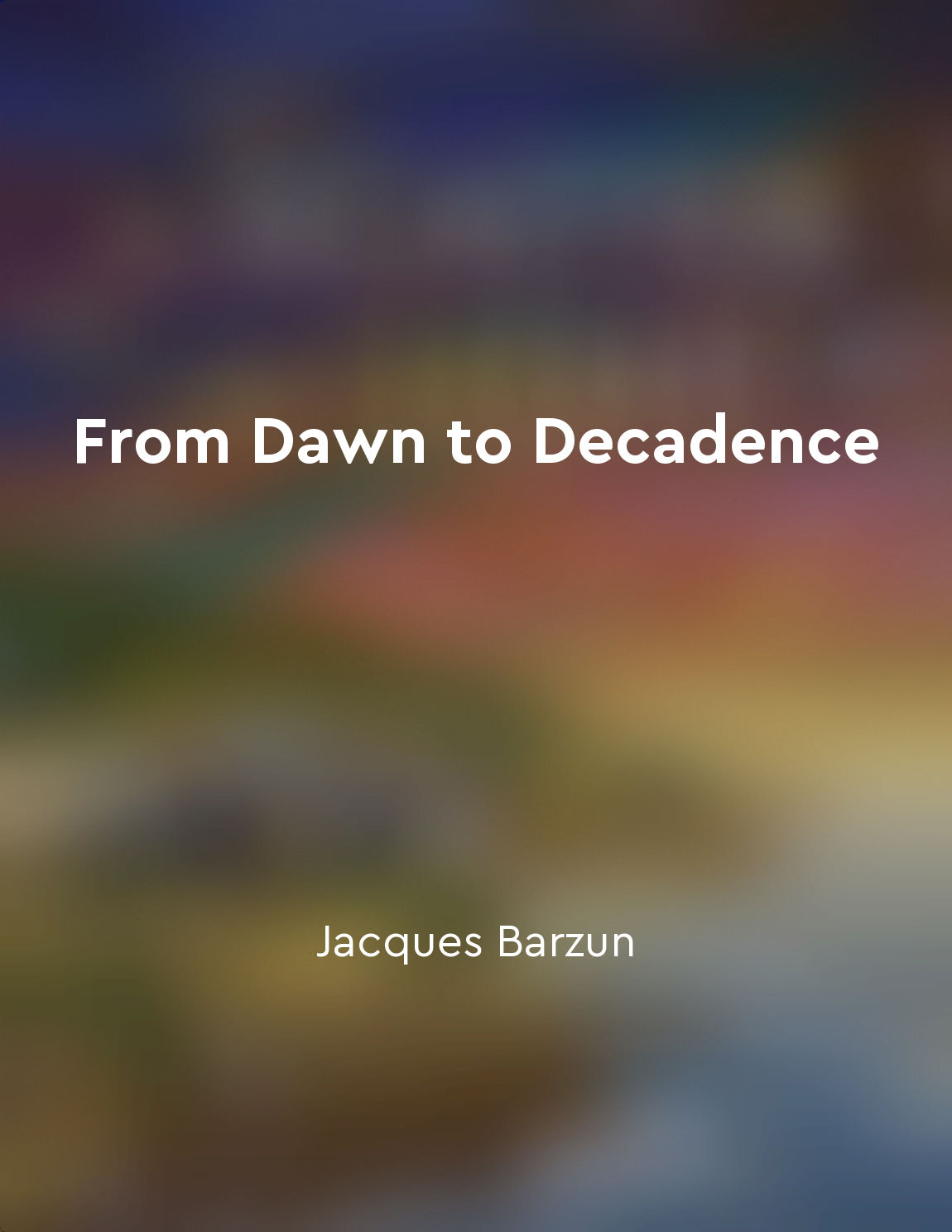Religious institutions sought to distinguish themselves from magical practices from "summary" of Religion and the Decline of Magic by Keith Thomas
Religious institutions, in their efforts to establish their authority and legitimacy, actively sought to distance themselves from magical practices. This was especially important during a time when beliefs in the supernatural and the efficacy of magic were prevalent in society. By denouncing magical practices as illegitimate and even heretical, religious authorities aimed to assert their own supremacy and control over matters of faith and spirituality. One way in which religious institutions distinguished themselves from magical practices was through the promotion of orthodox religious doctrine and rituals. These institutions emphasized the importance of adhering to established religious traditions and teachings, while condemning magical beliefs and practices as deviant and superstitious. By presenting themselves as the guardians of true religious faith, they sought to delegitimize competing forms of spirituality such as magic. Additionally, religious institutions sought to establish their credibility by aligning themselves with divine authority. They claimed to possess a direct connection to the divine, which distinguished them from practitioners of magic who were often viewed as intermediaries or manipulators of supernatural forces. By positioning themselves as the legitimate channels through which individuals could access spiritual power and blessings, religious authorities sought to marginalize magical practitioners and assert their own exclusive control over matters of the supernatural. Furthermore, religious institutions sought to enforce their authority by condemning magical practices as morally corrupt and spiritually dangerous. They portrayed magic as a sinful and illicit form of seeking power or control, in contrast to the virtuous and righteous path offered by orthodox religious teachings. By stigmatizing magic as a form of spiritual rebellion or blasphemy, religious authorities aimed to discourage individuals from seeking solace or guidance outside of their sanctioned religious frameworks.- The efforts of religious institutions to distinguish themselves from magical practices were driven by a desire to assert their own legitimacy and authority in matters of faith and spirituality. By denouncing magic as illegitimate, heretical, and morally corrupt, these institutions sought to establish themselves as the sole arbiters of spiritual truth and divine blessings.
Similar Posts
Martin Luther's NinetyFive Theses
In the autumn of 1517, a relatively unknown monk named Martin Luther posted a document on the door of the Castle Church in Witt...

Evolution is supported by overwhelming evidence
The concept of evolution being supported by overwhelming evidence is a fundamental truth that cannot be denied. The evidence fo...

Cultural shifts and societal changes
Cultural shifts and societal changes have been a constant feature of human history, shaping the course of civilizations over ti...
Life after death is a mysterious realm often visited by spirits
Life after death is a mysterious realm that has fascinated and perplexed humans for centuries. It is a realm shrouded in myster...

The future holds both promise and uncertainty
The future is like a vast and uncharted sea, full of both promise and uncertainty. Just as the sailors of old set out on their ...
Friendship is a powerful force
Friendship is a theme that runs throughout the Harry Potter series, and it is clear that J.
K. Rowling sees it as a powerful f...
Unity of theory and practice
The unity of theory and practice is a crucial concept in understanding the development of philosophy and its application to the...
Challenges of multiculturalism in politics
The challenges of multiculturalism in politics are significant and complex. In a diverse society, where people from different c...
Belief in the afterlife is wishful thinking
Belief in the afterlife is a concept that is deeply ingrained in many religions and cultures around the world. It offers the pr...
Modern science influenced new ideas about God
During the modern period, which began in the sixteenth century, Europeans developed a new way of looking at the world. Scholars...

